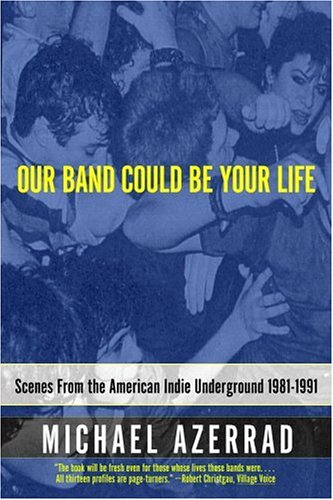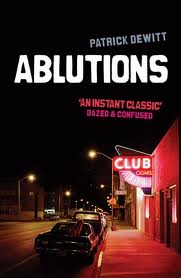Work is the all-American pastime, taking more and more of our waking hours, and infiltrating our sleep. It’s been grist for books from Studs Terkel’s “Working” to Joshua Ferris’ “And Then We Came to the End” to Joseph Heller’s “Something Happened,”set in an ad agency circa “Mad Men.”
Recently we asked NBCC members, former awards winners and finalists, What’s your favorite book about work? The responses to this NBCC Reads series poured in (a few within minutes). Books ranged all over the map. Several books gathered multiple endorsements, including Philip Levine's “What Work Is,” Ed Park's “Personal Days,” Tom Rachman's “The Imperfectionists,” “Two-Up” by NBCC board member Eric Miles Williamson, George Orwell's “Down and Out in Paris and London.” The long tail of individual favorites began with NBCC Balakian award winner Joan Acocella's pick, Penelope Fitzgerald's “Human Voices.” Today's entry is from newly elected NBCC board member and Bookforum editor Michael Miller, who will be co-hosting, with Eric Banks, tomorrow night's Center for Fiction panel on “Criticism Beside Itself,” with Rivka Galchen, Elif Batuman, and Mark Athitakis.

My favorite book about work is “Our Band Could Be Your Life,” by Michael Azerrad, which is about American indie bands of the 80s and 90s. It is not music criticism–for that, you're better off with Simon Reynolds's “Rip It Up and Start Again,” which covers some of the same territory. But Azerrad's profiles of bands like Husker Du, Dinosaur Jr, the Minutemen, Mission of Burma, Black Flag, and others suggests an relentless work ethic among a group of musicians who had little corporate backing and almost no marketing. There is the insane practicing (Greg Ginn of Black Flag and Jay Mascis of Dinosaur come to mind). And the relentless touring (see most of the bands included). But maybe the most intense quality of the hard-working bands covered herein is their tendency to break apart–without bosses, many of these musicians clashed, mostly because they all excelled at their jobs. Husker Du and Dinosaur Jr. proved that some of the best companies are driven by such strong personalities that after going all out for success they can't help but fall apart.

Another book about work that I like is “Ablutions” by Patrick DeWitt. It concerns a group of people who work at (and attend) a Los Angeles bar. It is an exercise in perversity on many levels, but especially in the sense that the bar-employee narrator, never named, consistently behaves in ways that should get him fired, or beaten up, or killed. (He is occasionally beaten up.) The book's hilarious storytelling and cast of specialists in bad-judgment makes it worth the read. But the sensibility–sunk in work and in an attitude that is entirely against work–is shocking, offensive, and invigorating. Could you too screw your boss (and customers) as thoroughly as this narrator does? Probably not, but most of us would like to think we could.

